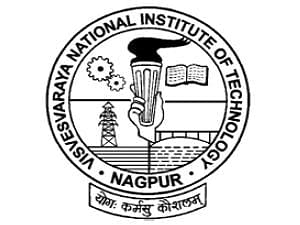Designing
the Future: A Journey through an MSc in Architecture
Architecture is more than just the creation of
buildings; it is the art and science of shaping spaces where people live, work,
and play. The journey through an MSc in Architecture is a deep dive into
advanced architectural theory, sustainable design, innovative technologies, and
interdisciplinary collaboration. This blog explores the unique facets of
pursuing an MSc in Architecture, the skills and knowledge it imparts, and the
opportunities it unlocks for aspiring architects.
Introduction:
The Gateway to Advanced Architectural Mastery
An MSc in Architecture is a postgraduate
degree that delves into the complexities and nuances of architectural design
and research. Unlike a Bachelor’s degree, which often focuses on foundational
skills and knowledge, an MSc program emphasizes specialized topics, advanced
techniques, and research methodologies. It prepares students for leadership
roles in architecture and related fields by fostering critical thinking,
innovation, and a deep understanding of the built environment.
Curriculum:
Bridging Theory and Practice
The curriculum of an MSc in Architecture at top college is designed to bridge the gap between theoretical knowledge and
practical application. Students engage with a variety of subjects, including:
- Advanced Architectural Design:
Courses in this area encourage students to push the boundaries of
traditional design. They explore new materials, cutting-edge technologies,
and innovative design approaches to create buildings that are not only
aesthetically pleasing but also functional and sustainable.
- Sustainable Architecture: With
a growing emphasis on environmental responsibility, sustainable
architecture is a key component of the MSc curriculum. Students learn
about green building practices, energy-efficient design, and sustainable
urban planning to reduce the environmental impact of construction and
promote a healthier planet.
- Architectural Theory and History:
Understanding the historical context and theoretical underpinnings of
architecture is crucial for any architect. Courses in architectural theory
and history provide students with a deep appreciation of the evolution of
architectural styles and the philosophical ideas that have shaped the
built environment.
- Digital Design and Fabrication: The
integration of digital technologies in architecture has revolutionized the
field. MSc programs often include courses on digital design tools,
parametric modeling, and computer-aided design (CAD), as well as digital
fabrication techniques such as 3D printing and CNC machining.
- Urban Design and Planning: As
urban populations continue to grow, the role of architects in designing
sustainable, livable cities becomes increasingly important. Courses in
urban design and planning address issues such as transportation, housing,
public spaces, and infrastructure, equipping students with the skills to
tackle complex urban challenges at best 5 college India.
- Research Methods and Thesis: A
significant component of the MSc program is the research thesis. Students
undertake original research on a topic of their choice, applying rigorous
research methods to contribute new knowledge to the field of architecture.
This process not only hones their research skills but also allows them to
delve deeply into an area of personal and professional interest.
Skills and
Competencies: Building a Versatile Architect
An MSc in Architecture equips students with a
diverse skill set that goes beyond design and construction. Some of the key
skills and competencies developed during the program include:
- Critical Thinking and Problem Solving: The ability to critically analyze problems and develop creative
solutions is essential for architects. MSc programs foster these skills
through design studios, research projects, and interdisciplinary
collaboration.
- Technical Proficiency:
Advanced courses in digital design, structural engineering, and building
technologies enhance students' technical skills, enabling them to tackle
complex design challenges and stay abreast of technological advancements
in the field.
- Communication and Collaboration:
Architects must be able to communicate their ideas effectively and work
collaboratively with clients, engineers, contractors, and other
stakeholders. MSc programs emphasize the development of these soft skills
through group projects, presentations, and professional practice courses.
- Sustainability and Ethics: With
the growing emphasis on sustainability and ethical practice in
architecture, MSc programs instill a strong sense of environmental and
social responsibility. Students learn to design buildings that are not
only beautiful and functional but also environmentally friendly and
socially equitable.
Career
Opportunities: Beyond Traditional Architecture
Graduates of an MSc in Architecture program
have a wide range of career opportunities available to them, both within and
beyond traditional architectural practice. Some potential career paths include:
- Architectural Design: Many
graduates continue to work as architects, applying their advanced skills
and knowledge to design innovative and sustainable buildings.
- Urban Planning and Design: With
their expertise in urban design and planning, graduates can work for
municipal planning departments, urban design firms, or non-profit
organizations focused on sustainable urban development.
- Sustainability Consulting: The
emphasis on sustainable architecture in MSc programs prepares graduates
for careers as sustainability consultants, helping organizations to design
at MSc in Architecture top college and implement environmentally
friendly building practices.
- Research and Academia:
Graduates with a passion for research and education can pursue careers in
academia, teaching architectural theory and design at universities or
conducting research at architectural research institutions.
- Digital Design and Fabrication: The
technical skills developed in digital design and fabrication courses open
up opportunities in fields such as digital manufacturing, computational
design, and parametric modeling.
- Construction Management: With
their comprehensive understanding of building technologies and
construction processes, MSc graduates can work as construction managers,
overseeing the construction of complex architectural projects.
Conclusion:
Shaping the Future of Architecture
An MSc in Architecture is more than just an
advanced degree; it is a transformative journey that equips students with the
skills, knowledge, and vision to shape the future of architecture. By blending
theoretical knowledge with practical application, fostering critical thinking
and innovation, and emphasizing sustainability and ethical practice, MSc
programs prepare graduates to tackle the complex challenges of the built
environment and make a positive impact on the world.
Whether you aspire to design iconic buildings,
create sustainable urban spaces, conduct groundbreaking research, or lead
interdisciplinary teams, an MSc in Architecture top college provides the
foundation and inspiration to achieve your goals and contribute to the
ever-evolving field of architecture.












